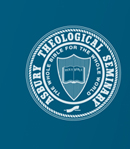Abstract
The discussion of Christian theology of religions has focused primarily so far on the question of whether or not the Christian understanding of salvation is available through other religions to their adherents. The predominant responses of exclusivism, inclusivism, and pluralism have shaped the debate and serve as a typology for organizing the various theologies of religions. While Pentecostals have generally fallen into the exclusivist category - e.g., that salvation is available only to those who have converted to Christian faith - there are also other resources related to their views regarding the universal work of the Holy Spirit that have not yet been adequately explored for the purposes of developing a more distinctive set of not only Pentecostal beliefs about other religions but also Christian practices related to people in other faiths. The first two parts of this essay survey the basic threefold typology and assesses the strengths and limitations of each position. The concluding section presents the contours of the emerging pneumatological paradigm informed by the "Pentecostal" idea of the Holy Spirit who has been poured out on all flesh, and suggests how this approach might enrich Christian beliefs about the religions and invigorate a more hospitable form of practices related to people of other faiths.
DOI
10.7252/Journal.01.2007F.01
Recommended Citation
Yong, Amos
(2007)
"The Spirit, Christian Practices, and the Religions: Theology of Religions in Pentecostal and Pneumatological Perspective,"
The Asbury Journal:
Vol. 62:
No.
2, p. 5-31.
Available at:
https://place.asburyseminary.edu/asburyjournal/vol62/iss2/2

